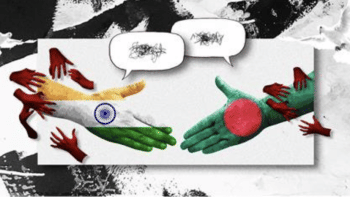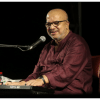Could the Indian foreign secretary’s visit create positive optics?

Given the steady decline in Bangladesh-India relations since August, it is tempting to view Indian Foreign Secretary Vikram Misri's December 9 visit to Dhaka and his talks with top leaders, including the interim government's Chief Adviser Prof Muhammad Yunus, either negatively or positively. It all depends on one's own perception.
However, Misri's visit, the first by a top Indian diplomat since Hasina's escape to India, appears to have provided a much-needed welcome break from the rising cacophony of megaphone diplomacy and the shriller voices emanating from a section of the media which made the bilateral relations between Bangladesh and India frosty, if not downright hostile.
It may be argued that Misri's interaction with Yunus, Bangladesh Foreign Adviser Md Touhid Hossain and Foreign Secretary Md Jashim Uddin did not yield new meeting ground, nor were they expected to during this initial round of talks. What it did at best was for the two sides to bring to the table their respective concerns and expectations of each other. Yunus flagged the issue of Hasina's continued stay in India and her statements from there which he says added to the strained ties. Jashim Uddin conveyed Dhaka's concern over border killings and described India's comments on the plight of minorities in Bangladesh as "interference" in his country's internal affairs.
Bangladesh has resented a security breach at Bangladesh Assistant High Commission in Agartala during a large protest there against alleged attacks on Hindus. In Dhaka, Misri articulated the attacks on "religious, diplomatic and cultural properties" which fuelled resentment in India.
But it would be grossly unfair to just look at areas of concern. More than anything else, the Indian foreign secretary's visit underlines that the two countries are willing to not allow the incidents since August to prevent the efforts for charting a new journey. According to media reports, Yunus, during his meeting with Misri, said that the relations between Bangladesh and India were "very solid" and "close" and asked India to help "clear the clouds."
For his part, Misri stressed India's "desire to work closely with the Interim Government of Bangladesh." The Indian foreign secretary made it a point to recall that since the political changes in Bangladesh, Prime Minister Narendra Modi was the first world leader to greet Chief Adviser Yunus on his assumption of office, the two leaders had a "very cordial" telephone conversation thereafter, and Yunus accepted Modi's invitation to speak at the online event 3rd Voice of Global South Summit in August. Plus, there was the meeting between Indian External Affairs Minister S Jaishankar and Bangladesh Foreign Adviser Touhid Hossain in New York in September this year. Misri emphasised, "India desires a positive, constructive, and mutually beneficial relationship with Bangladesh."
Misri also made two important points. First, he conveyed that India has always seen in the past and will continue to see in the future the relationship with Bangladesh "as a people-centric and people-oriented relationship, one that has the benefit of all the people as its central motivational force." Secondly, he made it clear the development projects executed by India in Bangladesh reflected mutually beneficial engagement on issues ranging from trade, commerce, connectivity, power, water and energy, consular cooperation and cultural cooperation. He said there is no reason why this cooperation should not continue to deliver in the interest of both Bangladeshis and Indians. This should be seen as a counter to criticism often aired in Bangladesh that India has invested in the Awami League rather than the people of that country.
After the Indian foreign secretary's visit, the two sides indicated their readiness to resume the unfinished challenges in bilateral ties—border management, trade and connectivity, water, energy sectors, development cooperation, consular, cultural and people-to-people ties. The jury is still out if the visit helped create largely positive optics. For that to happen, India and Bangladesh must be mindful of each other's areas of concerns and priorities and not brush them aside. It is to be noted that a day after Misri's visit, Yunus' press secretary Shafiqul Alam told the media that there have been 88 incidents of communal violence against the minorities between August 5 and October 22 (with him also saying that many of them were connected to the previous ruling party) and 70 people have been arrested in connection with those incidents.
Pallab Bhattacharya is a special correspondent for The Daily Star. He writes from New Delhi, India.
Views expressed in this article are the author's own.
Follow The Daily Star Opinion on Facebook for the latest opinions, commentaries and analyses by experts and professionals. To contribute your article or letter to The Daily Star Opinion, see our guidelines for submission.

 For all latest news, follow The Daily Star's Google News channel.
For all latest news, follow The Daily Star's Google News channel. 









Comments